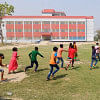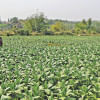Tobacco production kills
We are shocked at a report in this daily yesterday marking 'World No Tobacco Day', that has revealed that as many as 3000 children aged between seven and 15 work in bidi factories in Lalmonirhat. Other children of this area work in tobacco fields. Thus, instead of going to schools these children work for hours on end in the fields and factories where they are exposed to the harmful nicotine fumes emitted during production and deprived of fresh air. Often the entire family is engaged in the tobacco production and so suffers from all kinds of ailments caused by the bidi-making process. Because of poverty and lack of alternative options of livelihood, the people of Lalmonirhat are compelled to go into tobacco farming, often involving their children as well.
Add to this the astonishing finding reported in this paper that prices of essential food items have risen more than the price of tobacco products. This means tobacco has become more affordable than food! Many farmers have switched from cultivating food crops to tobacco farming. This is because food crops have become costly to produce and do not give the expected returns while tobacco cultivation gives higher profits.
Such a grim picture must provoke the government to take immediate steps. Firstly, it must initiate special safety net programmes for the ultra poor in these areas, to encourage parents to send their children to schools instead of the factories. Secondly, the tax on tobacco products have to be increased to make them more expensive to consume and produce. Finally, farmers must be given incentives to make food crop cultivation viable enough so that they do not shift to tobacco farming.

 For all latest news, follow The Daily Star's Google News channel.
For all latest news, follow The Daily Star's Google News channel. 








Comments